arterial vs venous ulcers
Venous vs. Arterial Ulcers: What is the difference? When it comes to arterial and venous ulcers one would think that the difference would be quite obvious as we are talking about two completely different etiologies. Unfortunately, due to the lack of comprehensive chronic wound management education available to doctors in their post-secondary education, many doctors may not really understand or appreciate the unique manifestations associated with each type of wound. We will decipher them in recognizable criteria so that diagnosis and/or differentiation can be done more accurately. Determining etiology or underlying cause is key to establishing an appropriate treatment plan. The vascular system can be seen as a plumbing network that ensures that the blood — which carries vital oxygen, nutrition and other important cells — reaches all areas and tissues in the body. There is a delivery side (arteries) and a return side (veins). Let's spread the blood ulcers first. Arterial Ulceres Up CloseThe artistic ulcers are the result of the arteries (delivery system) narrowing or blocking, which reduces the blood supply to tissues. The most common cause of this narrowing or blocking is the formation of atherosclerotic plates on the walls of the arteries. This leads to ischemia and finally to tissue death. The results of the ABI (white clay index) are The beds of the wound are initially necrotic with minimal exudate and as they are usually debriated reveal a base of the pale wound. The surrounding tissue (dog and lower leg) is often whitened, dry, shiny and decreases in temperature. Other manifestations may include thick nails, hair loss in the lower leg, cyanosis, and claudication pain. Treatment usually involves surgical intervention (revascularization or angioplasty) and/or medications to reduce blocking/reduction and increase blood flooding to restore the delivery side of the plumbing network. Let's take a look at the issue with the return side. Venous Ulcers Unlike the arterial side, which has inherently superior pressure to push the blood to the body, the venous side has a much lower pressure to ensure the proper return of the blood back to the heart. A number of mechanisms must be adequately involved and operated. I often refer to them as the 3 P: bombs, pressure and plumbing. Since the venous side does not have the benefit of the heart to move the blood as effectively as it does for the arterial side, the veins rely on the muscles to "small" the blood uphill against gravity. Each time the calf muscles contract with walking, tighten the veins by creating pressures up to 300 mmHg. If we remember the physical class again, we know that a liquid will move from high to low pressure, so the blood is forced away from the contracting muscle. However, that's not enough. The veins (plumbing) have one-way valves that direct the blood in a direction to the heart. When this 3-Ps system starts to fail, the blood will begin to join the lower limbs and stagnate into the venous system. Intravenous pressure increases and then the fluid begins to filter into the interstitial space that results in edema. Left unchecked, this will lead to a multitude of tissue changes including possible ulcers. Unlike blood ulcers, venous ulcers are not spontaneous, as about 75% are activated as a result of trauma, burns, cellulite and insect bites to name a few; and the other 25% are being studied for what triggers them. The venous ulcers are typically located in the middle side of the lower leg from the mid-calf to medial malleolus, but can be found in other areas of the lower leg. The ulcers are often irregular in form and shallow. The beds of the wound are usually present with mass, granulation or a mixture of both, and the exudate is moderate to heavy initially. The surrounding tissue can be dry, squamous or wet and weeping, and dermatitis is very common. The obstruction edema initially appears, however as the lymphatic system becomes compromised and fibrous changes occur in the tissue, it will change to non-pitting edema. As red blood cells begin to filter out from capillaries, the rupture and then release hemoglobin, a red-brona discoloration of the skin called weiderin stain can begin to appear. Other manifestations may include things such as blanche atrophy, lipowermatosclerosis and varicose veins. Treatment requires graduating therapeutic level compression, activation of the calf pump and elevation to reduce edema, followed by proper management of the topic wound. Some medicines such as Trental, Doxycycline and Vasculera can also be useful. As we have shown, arterial and venous ulcers, although both as a result of a committed vascular system, are very different in their etiology and management. You can see the importance of adequately differentiate the two ulcers in the general treatment of these wounds, and I hope that this information presented will make this process much easier. Until the next time...... Calm down! Comments This entry was posted on Friday, July 21, 2017 at 2:38 pm and is presented under , , . You can follow any response to this entry through the feeding. Both comments and pings are currently closed. Comments are closed.

Venous vs. Arterial Lower Extremity Ulcers: Differential Diagnosis and Interventions | WoundSource
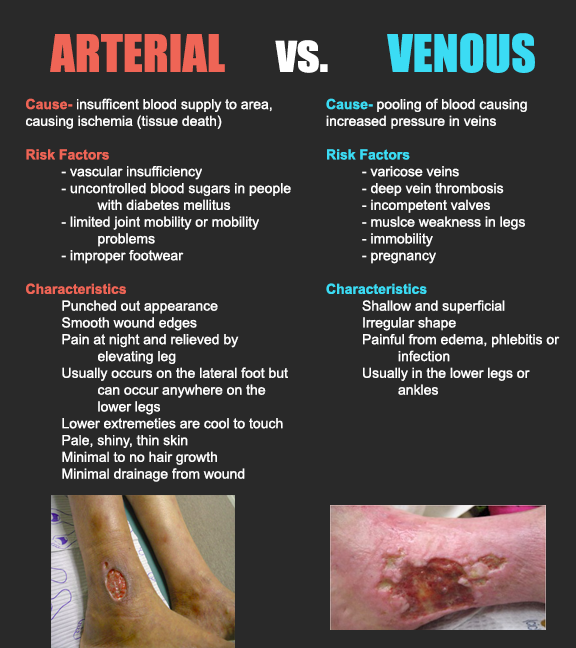
Arterial vs Venous Ulcers - NCLEX Quiz

Venous vs. arterial ulcers.... - Association of PAs in Cardiothoracic and Vascular Surgery | Facebook

Difference Between Arterial Ulcers & Venous Ulcers - Video & Lesson Transcript | Study.com

Arterial Ulcers vs. Venous Ulcers for... - Registerednursern.com | Facebook

Chronic Arterial vs Chronic Venous Insufficiency. #Venous ... | GrepMed

How do you distinguish a venous ulcer from an arterial wound? Here's your guide - Medline
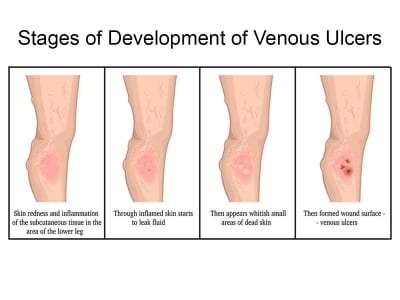
Pain Management for Venous Ulcers | Novus Spine & Pain Center

How do you distinguish a venous ulcer from an arterial wound? Here's your guide - Medline

Arterial Ulcer Vs Venous Ulcer Vs Diabetic Ulcer

PDF) ABC of wound healing: venous and Arterial Leg ulcers

An Overview of Leg Ulcers - YouTube
What are Venous Leg Ulcer|HEAVYLEGS.IN
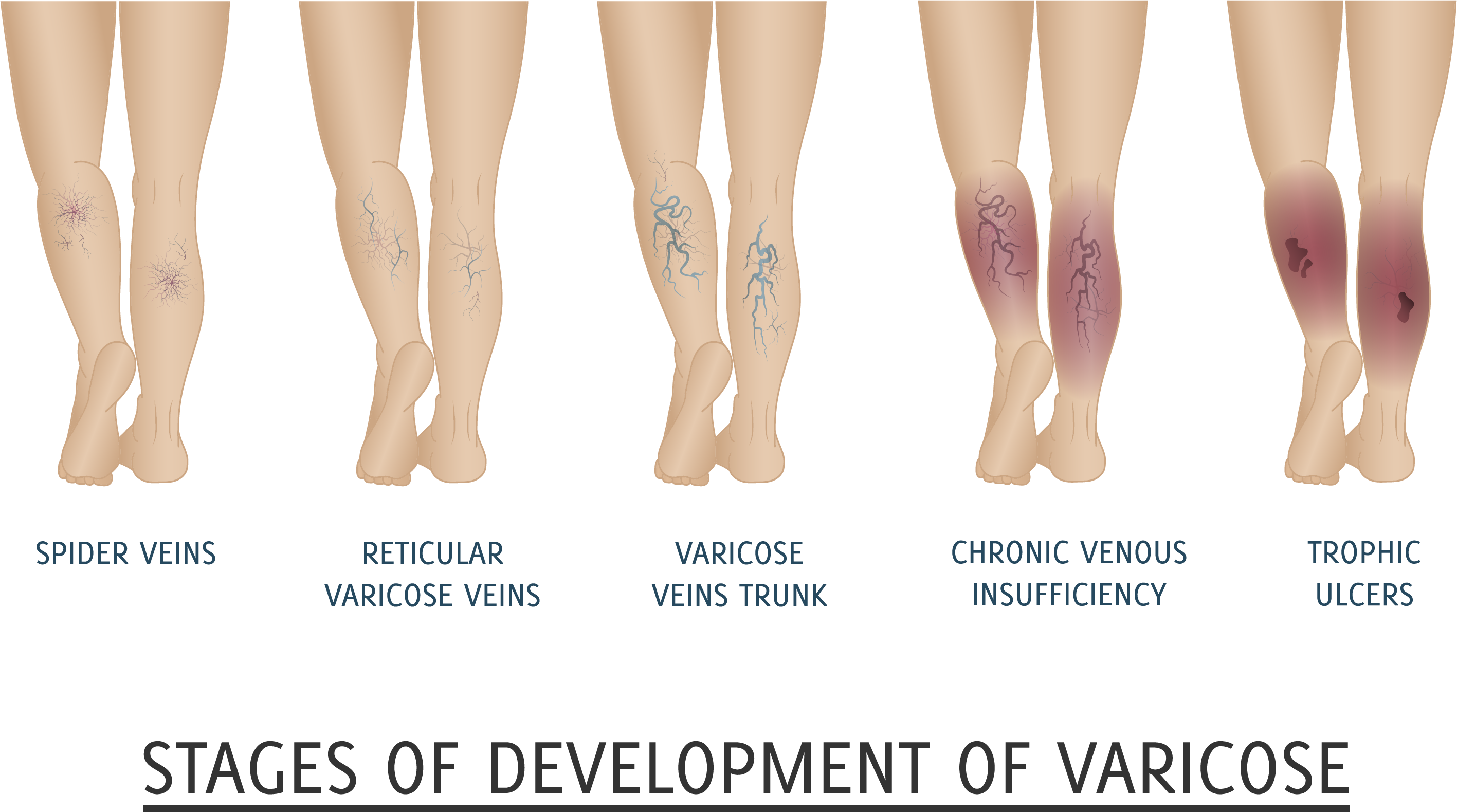
Everything You Need to Know About Venous Ulcers - Vein Centre

Clinical presentations of various chronic wound pathologies. Impaired... | Download Scientific Diagram

Venous ulcers and chronic wounds | Wounds nursing, Wound care nursing, Nursing mnemonics
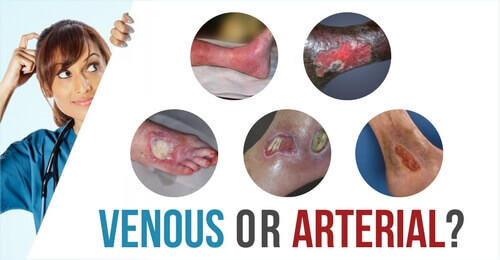
Venous vs. Arterial Ulcers: What's the Difference? | WCEI Blog WCEI Blog

Difference Between Arterial and Venous Ulcers | Compare the Difference Between Similar Terms

Arterial vs Venous Ulceration (Page 1) - Line.17QQ.com

Venous & arterial ulcers | Smith & Nephew
Urgo Medical » Leg ulcers

Identifying Venous Leg Ulcers | Medtronic

Arterial and Venous Ulcers - ppt download
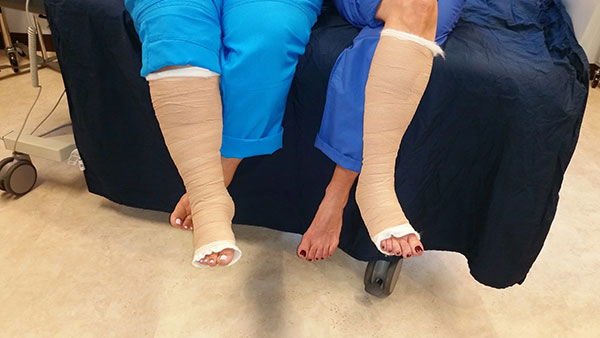
Venous vs Arterial Ulcers: Difference Between

Пин от пользователя Letty Lara на доске Peripheral Vascular/ Lymphatic

Common Ulcers of the Ankles and Feet Chronic Venous ... | GrepMed

Does Venous Reflux a Venous Ulcer Make? | Caroline Fife M.D.

Arterial Ulcers vs. Venous Ulcers Nursing (Characteristics) for PVD (Peripheral Vascular Disease) - YouTube

LEAD: Lower extremity arterial disease (copied from UCLAMSN2017, ADULT GERO EXAM 3) Flashcards | Quizlet
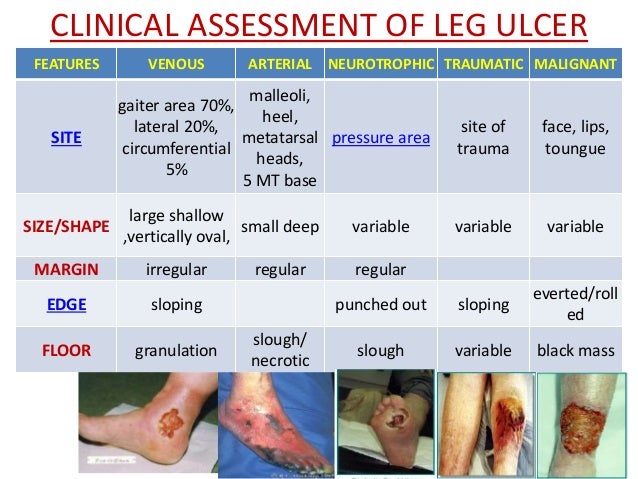
Leg ulcer
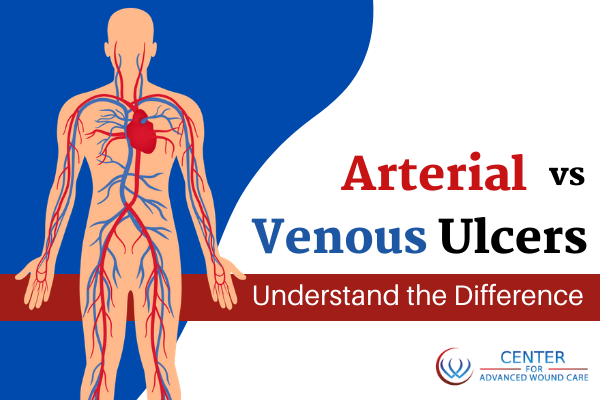
Arterial Vs. Venous Ulcers - Understand The Difference

Arterial vs Venous Ulcers: Diagnosis, Treatment, Symptoms & More

Arterial Ulcer Vs Venous Ulcer Vs Diabetic Ulcer

Peripheral Arterial Disease vs. Peripheral Venous Disease NCLEX Review

Comparison table between arterial vs venous leg ulcers. ... | GrepMed

Venous Stasis Ulcer Vs Arterial Ulcer Chronic venous insufficiency | Ulcers, Venous insufficiency, Vascular ultrasound

Ulcer Mnemonics – Party Year

Arterial Ulcers Vs Venous Ulcers Nursing Characteristics For Pvd Peripheral Vascular Disease | Dubai Khalifa

Vascular Ulceration | Thoracic Key

Arterial Ulcer Vs Venous Ulcer Vs Diabetic Ulcer
Posting Komentar untuk "arterial vs venous ulcers"